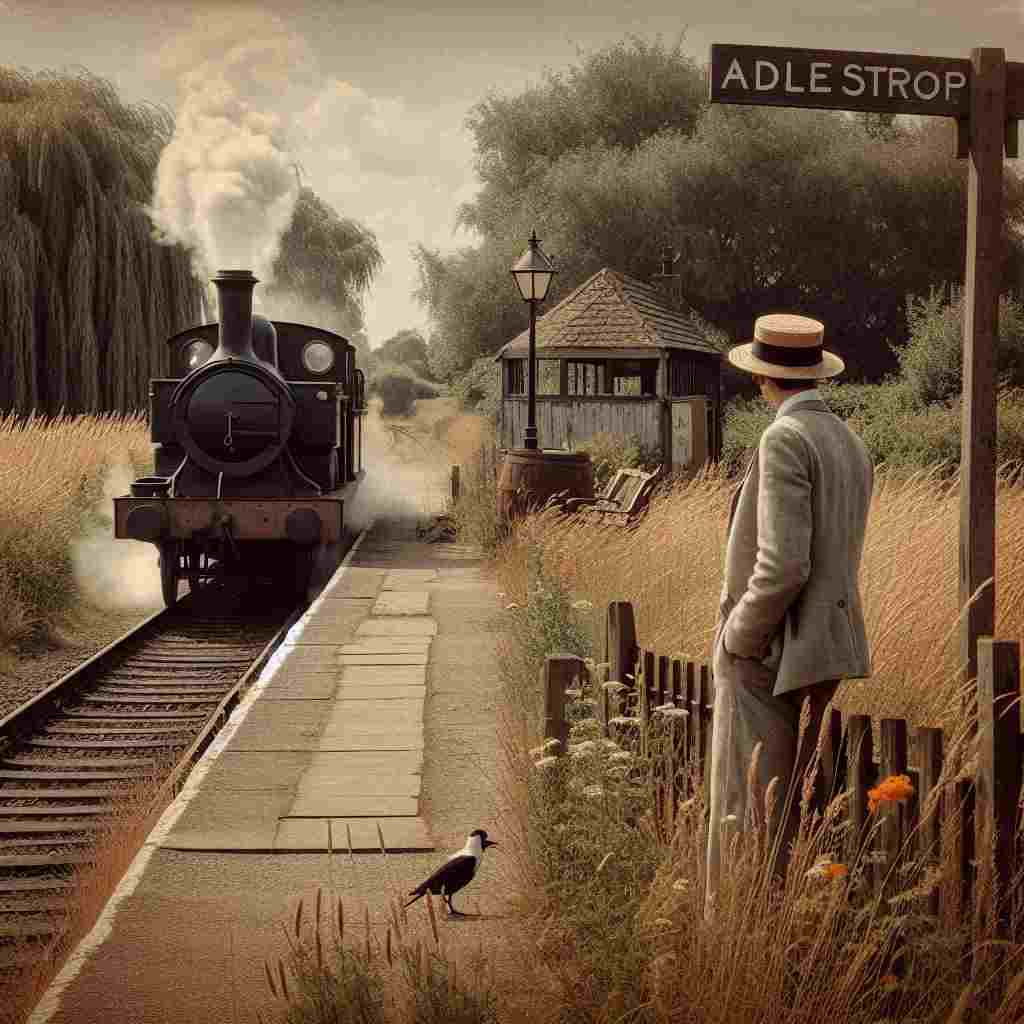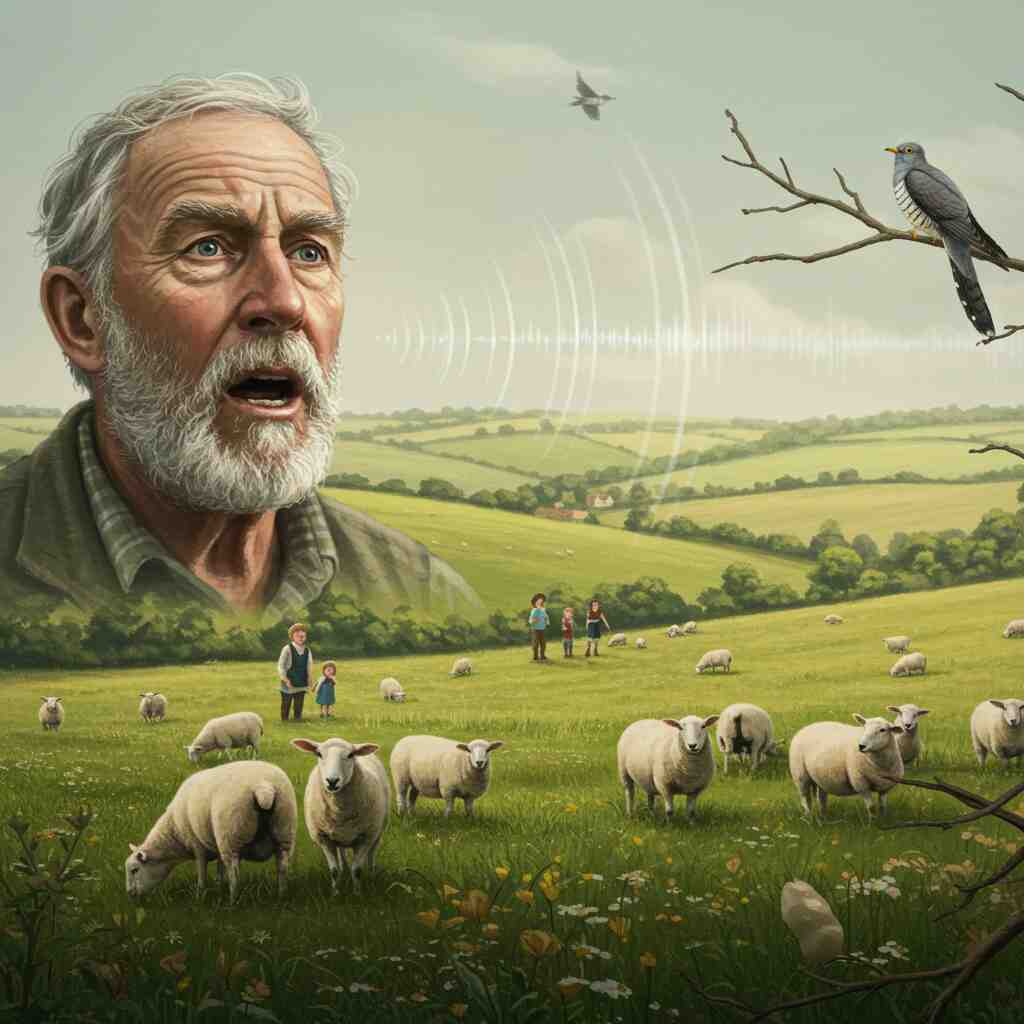7 Poems by Edward Thomas
1878 - 1917
Edward Thomas Biography
Edward Thomas, born Philip Edward Thomas on March 3, 1878, in Lambeth, London, was a poet, essayist, and novelist whose life and work left an indelible mark on English literature. Though his poetic career was brief, spanning just the last few years of his life, Thomas's impact on modern poetry has been profound and enduring.
Thomas was born into a Welsh family, the eldest of six sons. His father, Philip Henry Thomas, was a civil servant and railway clerk with literary aspirations of his own. From an early age, Edward showed a keen interest in nature and literature, influences that would shape his later work. He attended Battersea Grammar School and later won a scholarship to St. Paul's School in London, where he excelled academically.
In 1897, Thomas entered Lincoln College, Oxford, to study history. It was during his time at Oxford that he met Helen Noble, the daughter of the historian James Ashcroft Noble. Their relationship blossomed, and they married in 1899 when Thomas was just 21 years old. The marriage would prove to be both a source of support and tension throughout Thomas's life, as he struggled with depression and the demands of supporting a family through his writing.
After leaving Oxford in 1900 without completing his degree, Thomas embarked on a career as a literary reviewer and critic. He was incredibly prolific, sometimes writing as many as fifteen reviews a week for various publications. This work, while providing a steady income, was often unfulfilling for Thomas, who yearned for more creative expression. Nevertheless, his critical writings were insightful and influential, particularly his studies of Richard Jefferies, Maurice Maeterlinck, and Walter Pater.
Throughout the early years of the 20th century, Thomas published several books of essays, largely focused on the English countryside and rural life. Works such as "The Woodland Life" (1897), "Horae Solitariae" (1902), and "The Heart of England" (1906) established him as a notable nature writer and critic. His prose style was marked by a keen observational eye and a deep sensitivity to the nuances of landscape and rural traditions.
Despite his success as a prose writer, Thomas struggled with depression and a sense of unfulfillment. He often felt trapped by the demands of his reviewing work and the pressure to provide for his family. These inner conflicts are poignantly reflected in his autobiographical novel "The Happy-Go-Lucky Morgans" (1913), which explores themes of family, memory, and the search for meaning.
The turning point in Thomas's literary career came in 1913 when he met the American poet Robert Frost. Frost had moved to England with his family and settled in Gloucestershire, not far from where Thomas was living. The two men formed a deep and influential friendship, with Frost encouraging Thomas to turn his hand to poetry. It was Frost who famously told Thomas that his prose already contained the rhythms of blank verse and needed only to be lineated differently to become poetry.
Inspired by Frost's encouragement and his own growing dissatisfaction with prose, Thomas began writing poetry in December 1914. Over the next two years, he would produce a remarkable body of work – 144 poems that would secure his place in the pantheon of English poetry. Thomas's verse is characterized by its conversational tone, precise observation of nature, and exploration of complex emotional states. Poems such as "Adlestrop," "The Owl," and "Rain" are now considered classics of early 20th-century English poetry.
Thomas's poetry is notable for its engagement with the English landscape and rural life, themes he had long explored in his prose works. However, his verse brings a new depth and complexity to these subjects, often using the natural world as a lens through which to examine personal and universal human experiences. His work is marked by a sense of melancholy and introspection, reflecting his own struggles with depression and his search for meaning in life.
The outbreak of World War I in 1914 had a profound impact on Thomas. Although he was 36 years old and could have avoided military service, he chose to enlist in the Artists Rifles in 1915. This decision was partly motivated by a sense of duty, but also by a desire to find a new purpose in life. Thomas's war poetry, while less explicitly focused on combat than that of some of his contemporaries, offers a nuanced and often ambivalent perspective on the conflict.
Tragically, Thomas's life was cut short on April 9, 1917, when he was killed by a shell blast during the Battle of Arras in France. He had been in France for just two months. His death came just as his poetry was beginning to gain recognition, with his first collection, "Poems," published posthumously later that year under the pseudonym Edward Eastaway.
In the years following his death, Thomas's reputation as a poet grew steadily. His friend Robert Frost, who had returned to America, played a significant role in promoting Thomas's work and securing his legacy. Today, Edward Thomas is recognized as a major figure in 20th-century English poetry, admired for his precise observations, subtle craftsmanship, and profound engagement with nature and the human condition.
Thomas's influence can be seen in the work of many subsequent poets, particularly those associated with the Movement in the 1950s and 60s. Poets such as Philip Larkin and Ted Hughes acknowledged their debt to Thomas, appreciating his clarity of expression and his ability to find depth and meaning in everyday experiences.
Beyond his poetry, Thomas's life and work continue to fascinate scholars and readers alike. His complex personality, his struggles with depression, his ambivalent relationship with rural England, and his tragic early death all contribute to the enduring interest in his life and work. Biographies, critical studies, and new editions of his work continue to appear, testament to the ongoing relevance and appeal of this remarkable poet.
Edward Thomas's legacy lies not only in his poetry but in his unique voice – one that bridges the gap between Georgian and Modernist poetry, that speaks with quiet authority about the complexities of the human heart, and that finds in the English countryside a mirror for the soul's deepest longings and conflicts. In his brief but brilliant poetic career, Thomas created a body of work that continues to move, challenge, and inspire readers more than a century after his death.
This text was generated by AI and is for reference only. Learn more
Username Information
No username is open
Unique usernames are free to use, but donations are always appreciated.
Quick Links
© 2024-2025 R.I.Chalmers (V2Melody).

All music on this site by R.I.Chalmers (V2Melody) is licensed under a Creative Commons Attribution-NonCommercial 4.0 International License.
Attribution Requirement:
When using this music, you must give appropriate credit by including the following statement (or equivalent) wherever the music is used or credited:
“Music by R.I.Chalmers (V2Melody) – https://v2melody.com”
Support My Work:
If you enjoy this music and would like to support future creations, donations are always welcome but never required.
Donate







